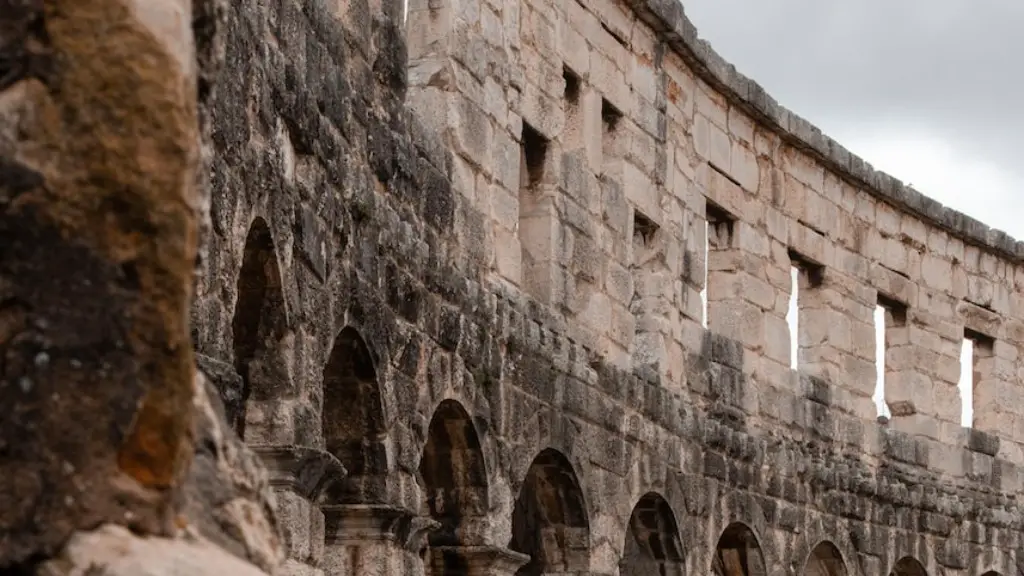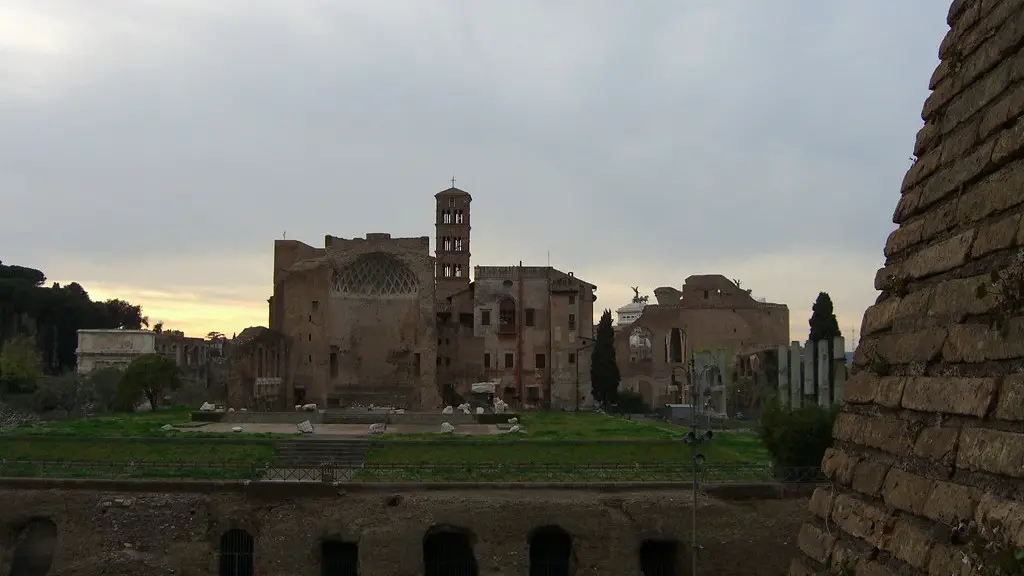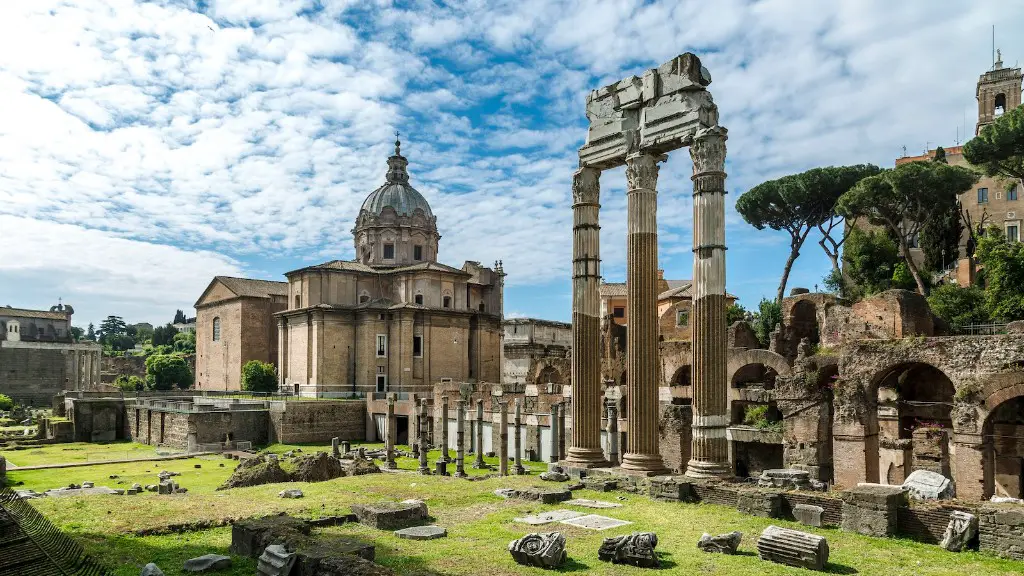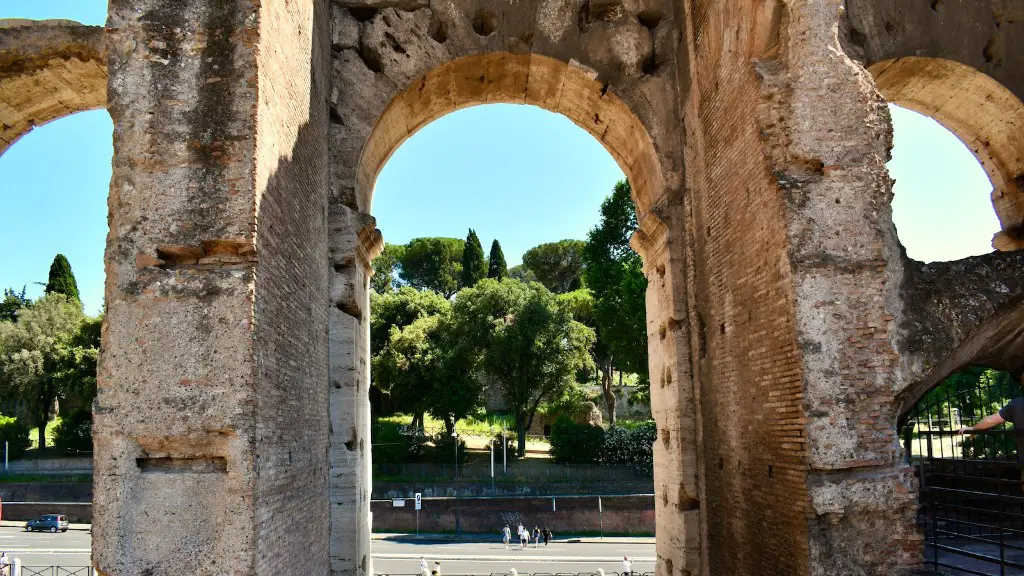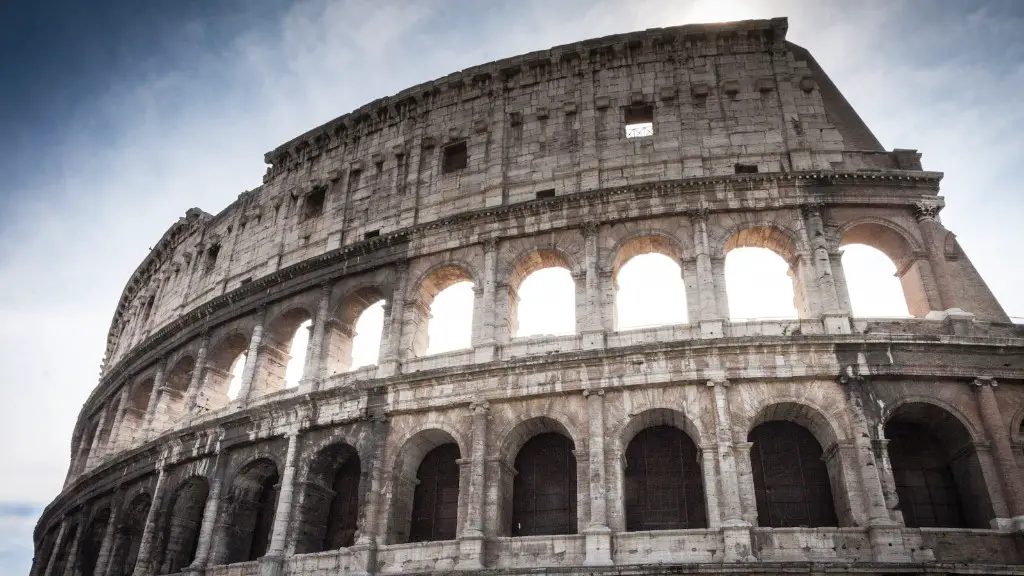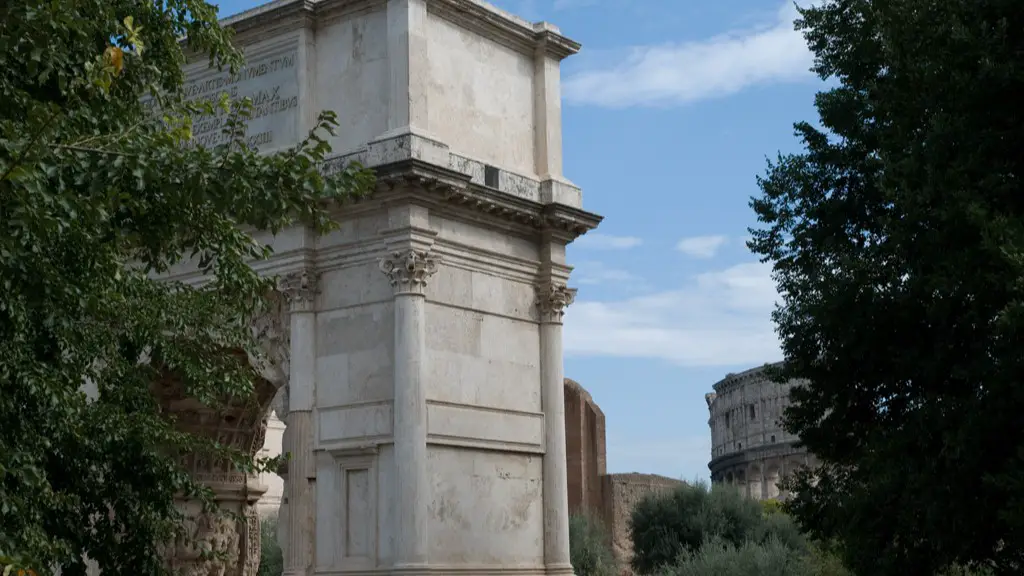Ancient Rome was one of the world’s most powerful civilizations, with a uniquely influential culture, religion and government. The Roman Empire was founded in 753 BCE, and despite the fact that it eventually declined and fell, it still has a lasting impact today. It is clear that the ancient Romans were invested in a wide array of issues. From architecture to art, literature, culture and leisure activities, politics and education, Rome was an ever-evolving culture in the pursuit of excellence.
Ancient Romans were drawn to warfare and conflict as evidenced by the detailed records of their military campaigns, which created an impressive empire spanning over 4 million sq km and several million inhabitants. This militarism extended beyond the military. Ancient Romans prized their speech-making abilities, rhetoric and oration, which helped to establish their city-state as a supreme power in the Mediterranean.
Education was a priority for ancient Romans, with deep investment in schools, libraries and a well-established system of higher learning. Their belief that education was of utmost importance helped to establish the legacy of Roman culture. Ancient Rome was a place of learning and a center of intellectual exploration.
Religion was also an important part of the lives of ancient Romans. The Roman empire encompassed a wide variety of religious practices and beliefs, including both polytheism and monotheism. The gods of Roman religion were integral to their lives, and the practice of honoring these gods in temple and other places of worship was commonplace.
Entertainment and leisure activities were also important to ancient Romans, from sports like chariot racing to spectacles like gladiatorial games. Ancient Romans also had a passion for theater, which was often used to express political ideas or to deprecate the current political system.
Writing was essential for the success of ancient Rome. From the legal system, to treaties and contracts between various cities, writing was the lifeblood of the Roman Empire. Ancient Roman writers developed one of the most influential literary styles in history, with authors like Cicero, Virgil and Horace becoming famous all over the world.
Lastly, one of the core values of ancient Rome was public service, and citizens were willing to put their own lives at risk to defend the republic. This sense of duty and dedication is at the heart of Roman culture and was essential to its success.
Art and Architecture
Ancient Rome had a long-standing passion for art and architecture. The ancient Romans were master architects and constructors, with the Colosseum, Pantheon and the Forum being among the most notable monuments of their legacy. These buildings are now considered some of the most impressive examples of Roman ingenuity and engineering.
Art was also an important part of Roman culture, with the Roman’s equestrian sculptures, painted portraits and mosaics all considered some of the finest artwork of the ancient world. Ancient Roman art was also influenced by the artistic styles of the Greeks and Etruscans, and is often seen as being more realistic than their predecessors.
What makes these art and architectural works so impressive is that the Romans were not just building for aesthetics, but for purpose. From the amphitheaters, to the roads, bridges and aqueducts, the ancient Romans were invested in engineering structures that would endure the test of time.
Ancient Rome also had a long-standing passion for literature and poetry. The written works of Roman authors like Virgil and Horace, who wrote works on love, epicureanism and Stoicism, have become some of the most beloved works of literature in the western world.
Language and Government
One of the defining features of the Roman Empire was its language. Latin was the official language, and it remained so even after the fall of the empire. Latin was the basis for many of the Romance languages today and has had a lasting impact on the English language.
Another major aspect of ancient Roman culture was its government. The Roman Republic was a complex system which saw a well-regulated senate, an important role for the citizens and courts with control of legal codes. It is this model of government which has been so influential in the western world, with democracies taking many of their aspects from the Romans.
Ancient Rome was also the first civilization in the world to actively secure the rights of its citizens. Slavery was abolished and those who witnessed injustice could now expect a fair trial. This sense of justice was critical to the stability of the Roman empire and remains a key notion in our society today.
Lastly, Roman religion was one of the most famous and influential aspects of their culture. The gods of Roman religion were numerous and varied and had a significant role to play in the daily life of the citizens. Roman religion was affected by the cultures of the various provinces which made up their empire; for example, the cult of Isis was imported from Egyptian culture and became popular in Rome itself.
Economy and Technology
Ancient Rome was one of the most significant economic powers of the ancient world. This was due to the large population, expansive trade networks and advancements in agriculture and industry. Roman technology was also highly advanced for its time, with the creation of innovations like air conditioning, a centralized water network, concrete, roadways and aqueducts.
Ancient Rome also had a well-developed legal system which made it easier to settle disputes and establish trade agreements. This enabled the Romans to build an extensive trade network which reached as far as India, China and the Arabian peninsula.
As part of their economic and cultural flourishing, ancient Romans had a highly developed monetary system. Through coins, wages and taxes, the Romans had a grasp on value which enabled them to further expand their influence.
Romans also developed new and innovative forms of transportation, which allowed them to establish a powerful trading network. Ships, wagons and chariots helped to move goods and people around the expansive Roman Empire and beyond.
Culture and Leisure Activities
Ancient Rome had a complex culture and was deeply invested in leisure activities and sports. Chariot racing was a popular sport, as were toga parties and theatrical performances. Public spectacles, such as gladiatorial games, also held deep meaning for the Roman citizens.
Ancient Romans were also deep appreciators of art and literature, holding celebrations in honor of their favorite writers and poets. The theatres were also popular spots to enjoy a performance, and here spectators were able to enjoy spectacles such as those in the famous Colosseum.
Ancient Romans were also invested in fashion, with a variety of styles and looks which were adopted by society. The wealthy upper echelons of society held great importance to looking their best, and this has been reflected in some of the most iconic Roman images.
Lastly, food and dining were also an important aspect of Roman culture. Roman chefs created some of the most deliciously elaborate dishes known to the ancient world, and wine was a staple of Roman life, with the wealthy throwing elaborate dinners and banquets.
Conclusion
Ancient Rome was one of the most remarkable civilizations in human history. Its impact can be felt to this day, from its intricate language to its political systems, its contributions to art, literature, science and technology. Ancient Romans prized a wide range of activities, each of which had a lasting impact on their legacy.
